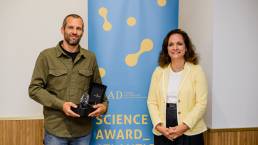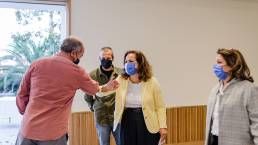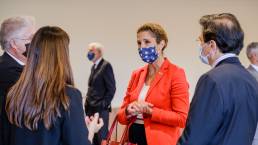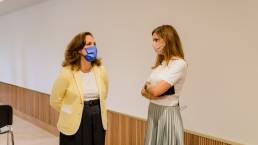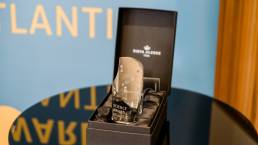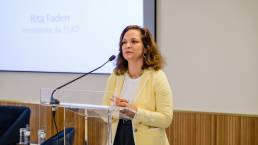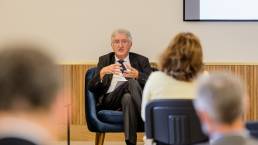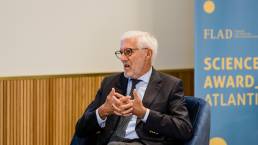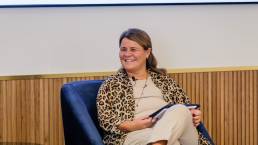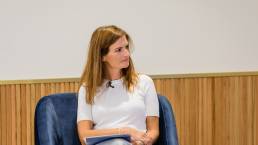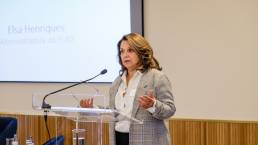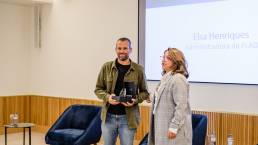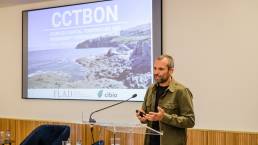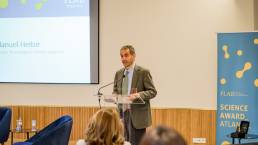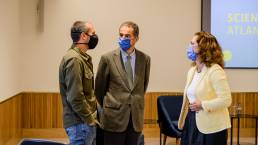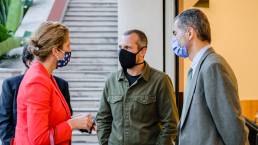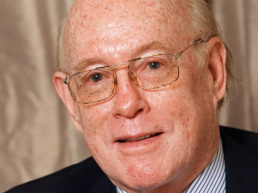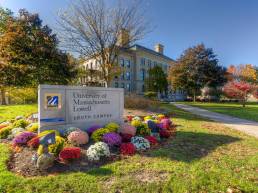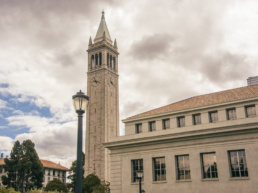Rui Seabra received the Science Award Atlantic 2020, in a ceremony attended by the Minister of Higher Education and which had a debate on the importance of the Atlantic.
“The quality of the projects was undoubtedly proof of the quality of the scientific community in Portugal,” explained FLAD President Rita Faden at the opening of the formal award event to the CIBIO-InBio researcher at the University of Porto.
Flad’s president assured that FLAD will continue to support the scientific community in Portugal, especially young researchers with projects of great merit, as is the case of the project presented by Rui Seabra.
“For FLAD, rewarding and encouraging the new generation of Portuguese scientists is, and will continue to be, a priority.” – Rita Faden, President of FLAD
Rui Seabra presented an ambitious project that will measure the impact of climate change on the two north Atlantic coasts, through the installation of more than 2000,000 sensors, on 85 beaches along the Atlantic Coast, which will measure the water temperature from Guinea-Bissau to Norway, through Iceland and Greenland, to the Arctic, and from there along the West Coast to Ecuador.
“This type of data will allow for a new multi-scale perspective on how temperature shapes intertidal biodiversity. We’re going to know everything about all the places.” Rui Seabra.
The Minister of Science and Higher Education, Manuel Heitor, closed the event held in the auditorium of the Foundation, praising the work of the researcher, but also the continued commitment of FLAD in scientific research.
“This project is not only scientifically relevant, but also of an extreme current, in the context Portuguese, transatlantic and also global. (…) The Atlantic relationship is not a new relationship, but Portugal’s positioning in the Atlantic needs projects like this to be valued.” – Manuel Heitor, Minister of Science and Higher Education.
The potential of the Atlantic
The award event also featured a debate on the various dimensions of the Atlantic Ocean, which was attended by Miguel Miranda, president of IPMA, António Sarmento, President of WavEC Offshore Renewables, and Lívia Franco, researcher and university professor at the Institute of Political Studies of the Catholic University.
In the debate, moderated by journalist Sara Antunes Oliveira, Lívia Franco denoted that despite the pessimism about the potential of the Atlantic community, whose death “has been announced successively since the moment it was created”, the truth is that its importance remains central as always.
“The market corresponding to the North Atlantic community is the cornerstone of the global economic systemic. (…) The European Project is what it is and has reached where it has come because it is obviously part of this community that is the transatlantic relationship.” – Lívia Franco, Professor and researcher at the Catholic University.
The moderator raised the eternal question of the untainted potential of the sea economy, a topic that has been on the political agenda intermittently over the past few decades, but with no results at the level of the potential attributed to it by some political leaders and experts in the field. António Sarmento, president of WavEC Offshore Renewables, said that the idea of failure exists mainly due to the expectations that have been created and not the lack of potential, or even results, that have been obtained in this area.
“What we had was to point to an expectation that would not be fulfilled. These are very time-consuming processes. But I am convinced that in a few years, perhaps later this decade, we will begin to see more tangible results. (…) There is a potential here that we can exploit, we have to prepare for it.” – António Sarmento, president of WavEC Offshore Renewables.
The president of the IPMA. Miguel Miranda, understands that the Portuguese scientific capacity on the sea “has risen significantly in recent years” and praised the collaborative aspect of Rui Seabra’s work, something he thinks is one of the best value of the project presented by the researcher of CIBIO-InBio of the University of Porto.
“Even in a complicated situation like the one we are living in are able to get citizens to work with each other on a basin scale.” – Miguel Miranda, president of IPMA.
You can learn more about the research that will be developed by Rui Seabra at this link.
Congratulations to Rui and good work!
Related Posts
March 25, 2025
Note of Condolence – Charles Buchanan (1934-2025)
March 24, 2025
Applications Open: FLAD/Saab Visiting Professor at UMass Lowell 2026
Portuguese professors can apply to…
March 17, 2025
FCT and FLAD sign new protocols with the University of California
The objective is to promote academic…
